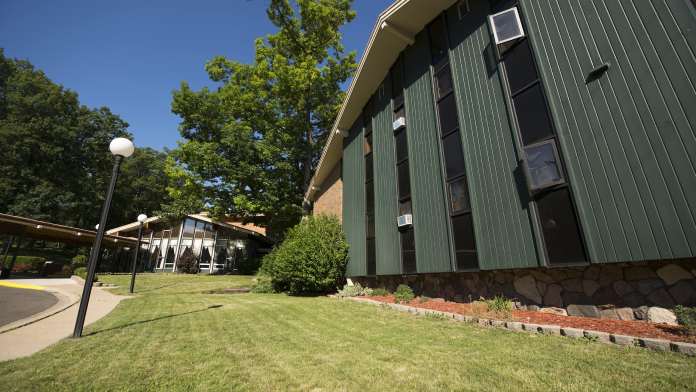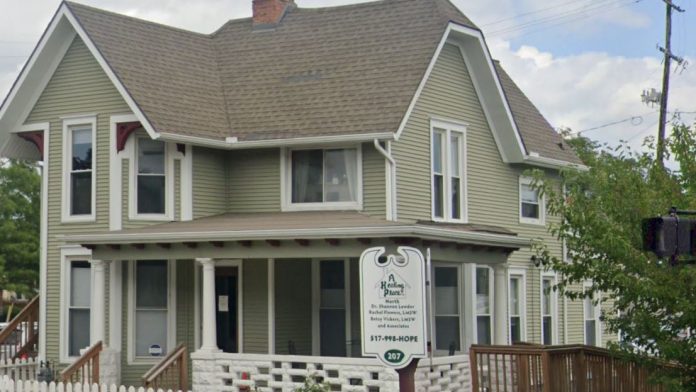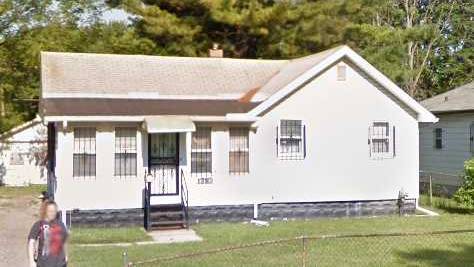Limited Availability: Treatment beds filling quickly. Call now for immediate placement – (844) 561-0606
Explore a comprehensive guide to 13 inpatient, 11 outpatient, and 6 detox centers across Michigan. Compare costs, reviews, and treatment options to find the perfect rehab facility for your needs.

 | A Forever RecoveryA Forever Recovery in Battle Creek, MI, is committed to providing comprehensive addiction treatment services for individuals seeking recovery from substance use disorders. The facility offers an array of personalized treatment options, including residential programs, outpatient services, and holistic therapies tailored to meet the unique needs of each client. With a dedicated and compassionate team, A Forever Recovery emphasizes a supportive atmosphere that fosters healing, resilience, and lasting change. Explore the resources available to help you or a loved one take the first steps toward a healthier and more fulfilling life. 216 St Marys Lake Rd, Battle Creek, MI 49017 | Levels of Care:Inpatientoutpatient Payment Options:MedicaidPrivate insuranceSelf-Pay OptionsFinancial AidMedicareMilitary Insurance | ||
 | A Healing PlaceA Healing Place in Jackson, MI, is dedicated to providing compassionate recovery services for individuals seeking support for substance use disorders and mental health challenges. The facility offers a variety of treatment options, including individual therapy, group counseling, and holistic programs designed to address the unique needs of each client. With a team of experienced professionals, A Healing Place focuses on creating a nurturing and supportive environment that fosters healing, growth, and long-term recovery. Discover the resources available to help you or a loved one embark on a path toward wellness and a brighter future. 207 1st Street, Jackson, MI 49201 | Levels of Care:Inpatient Payment Options:Private InsuranceSelf-Pay Options | ||
 | Above the Water HouseAbove the Water House in Flint, MI, is dedicated to providing supportive recovery services for individuals seeking help with substance use disorders and mental health challenges. The facility offers a range of personalized treatment options, including residential programs, outpatient therapy, and holistic wellness initiatives designed to meet the unique needs of each client. With a compassionate team of professionals, Above the Water House focuses on creating a safe and nurturing environment that fosters healing, resilience, and long-term recovery. Explore the resources available to help you or a loved one take meaningful steps towards a healthier and more fulfilling life. 4105 Keyes street, Flint, MI 48504 | Levels of Care:Inpatient Payment Options:Self-Pay Options | ||
Absolutely Private CounselingAbsolutely Private Counseling | Payment Options:Self-pay options | |||
Abundant Community Recovery ServicesAbundant Community Recovery Services | ||||
Abundant Life Christian CounselingAbundant Life Christian Counseling | Payment Options:Self-pay options | |||
Abundant Life Ministries - Fresh StartAbundant Life Ministries - Fresh Start | Payment Options:Medicaid | |||
ACAC - Alcohol and Chemical Abuse ConsultantsACAC - Alcohol and Chemical Abuse Consultants | Payment Options:Medicaid | |||
ACAC - Alcohol and Chemical Abuse ConsultantsACAC - Alcohol and Chemical Abuse Consultants | Payment Options:Private insurance | |||
Access Behavioral HealthcareAccess Behavioral Healthcare | Payment Options:Medicaid | |||
Action Counseling Clinic - Substance Abuse ServicesAction Counseling Clinic - Substance Abuse Services | Payment Options:Private insurance | |||
Action Net Psychological ServicesAction Net Psychological Services | Payment Options:Self-pay options | |||
Addiction Treatment ServicesAddiction Treatment Services | Payment Options:Financial aid | |||
Addiction Treatment Services - Dakoske HallAddiction Treatment Services - Dakoske Hall | Payment Options:Medicaid | |||
Addiction Treatment Services - OutpatientAddiction Treatment Services - Outpatient | Payment Options:Medicaid | |||
Addiction Treatment Services - Phoenix HallAddiction Treatment Services - Phoenix Hall | Payment Options:Medicaid | |||
Addiction Treatment Services - PIERAddiction Treatment Services - PIER | Payment Options:Self-pay options | |||
Adult Community Connections277 North Street Allegan MI, 49010 | Payment Options:Medicaid Private insurance Self-pay options Financial aid Financing available Sliding scale payment assistance Medicare | |||
Adult Well Being ServicesAdult Well Being Services | Payment Options:Medicaid | |||
Adult Well Being ServicesAdult Well Being Services | Payment Options:Medicaid |
Find Michigan drug rehabs in cities near you or sort by letter.
For anyone seeking help for addiction for themselves or a loved one calls to Addiction Helpline America are completely confidential and available 24/7.
Please note: any treatment center listed on our site that receives calls is a paid advertiser.
Calls to a specific treatment center’s listing will be connected directly to that center.
Calls to our general helpline will be answered by treatment providers, all of whom are paid advertisers.
By calling the helpline, you agree to our terms and conditions. These calls are free of charge and carry no obligation to enter treatment. Neither Sober Steps nor anyone answering your call receives a commission or fee based on your choice of treatment provider.
If you’d like to explore additional treatment options or connect with a specific rehab center, you can browse our top-rated listings, visit our homepage, or call us at (844) 561-0606. You may also contact us for further assistance.
Calls to any general helpline will be answered or returned by one of the treatment providers listed, each of which is a paid advertiser:
Our helpline is available 24 hours a day, 7 days a week at no cost to you and with no obligation for you to enter into treatment. We are committed to providing support and guidance whenever you need it.
In some cases, Addiction Helpline America charges our verified partner a modest cost per call. This fee helps us cover the costs of building and maintaining our website, ensuring that we can continue to offer this valuable service to those in need.
When seeking addiction treatment, it's crucial to understand the various levels of care available. These levels of care, including inpatient, outpatient, and detox services, cater to different needs based on the severity of addiction and individual circumstances. Inpatient care offers 24/7 supervision in a residential setting, while outpatient care allows individuals to receive treatment while maintaining their daily routines.
Each level of care is designed to provide support tailored to the patient's specific recovery journey. For instance, detox programs focus on safely managing withdrawal symptoms, while outpatient services offer flexibility for those who may not require intensive supervision. Understanding these options can help individuals make informed decisions about their treatment paths.
Choosing the right treatment center involves comparing various factors, including treatment modalities, costs, and success rates. It's essential to consider whether a facility offers evidence-based therapies, such as cognitive-behavioral therapy or medication-assisted treatment, which have proven effective in helping individuals recover from addiction.
Additionally, potential patients should evaluate the center's accreditation, staff qualifications, and patient reviews. Some facilities may also provide specialized programs for co-occurring disorders or holistic therapies that address both mental and physical health. By thoroughly comparing these options, individuals can select a treatment center that aligns with their recovery goals.
Understanding financial assistance and insurance options is vital for those seeking addiction treatment. Many rehab centers accept various payment methods, including private insurance, Medicaid, and self-pay options. Additionally, some facilities offer sliding scale fees based on income, making treatment more accessible for individuals from diverse financial backgrounds.
Insurance verification is an essential step before entering treatment, as it can significantly reduce out-of-pocket costs. Many rehab centers provide free insurance verification services to help potential patients understand their coverage and financial responsibilities. Exploring these options can alleviate financial barriers and facilitate access to necessary care.
Aftercare programs play a crucial role in supporting individuals after completing their initial treatment. These programs may include ongoing therapy sessions, support groups, and resources for sober living, all designed to help individuals maintain their recovery and prevent relapse. The transition from a structured rehab environment to everyday life can be challenging, making aftercare support essential.
Engaging in aftercare can provide individuals with the tools and community support needed to navigate post-treatment challenges. Many rehab centers offer customized aftercare plans that address individual needs, ensuring a smoother transition and a higher likelihood of sustained recovery. By prioritizing aftercare, individuals can build a solid foundation for their long-term health and well-being.